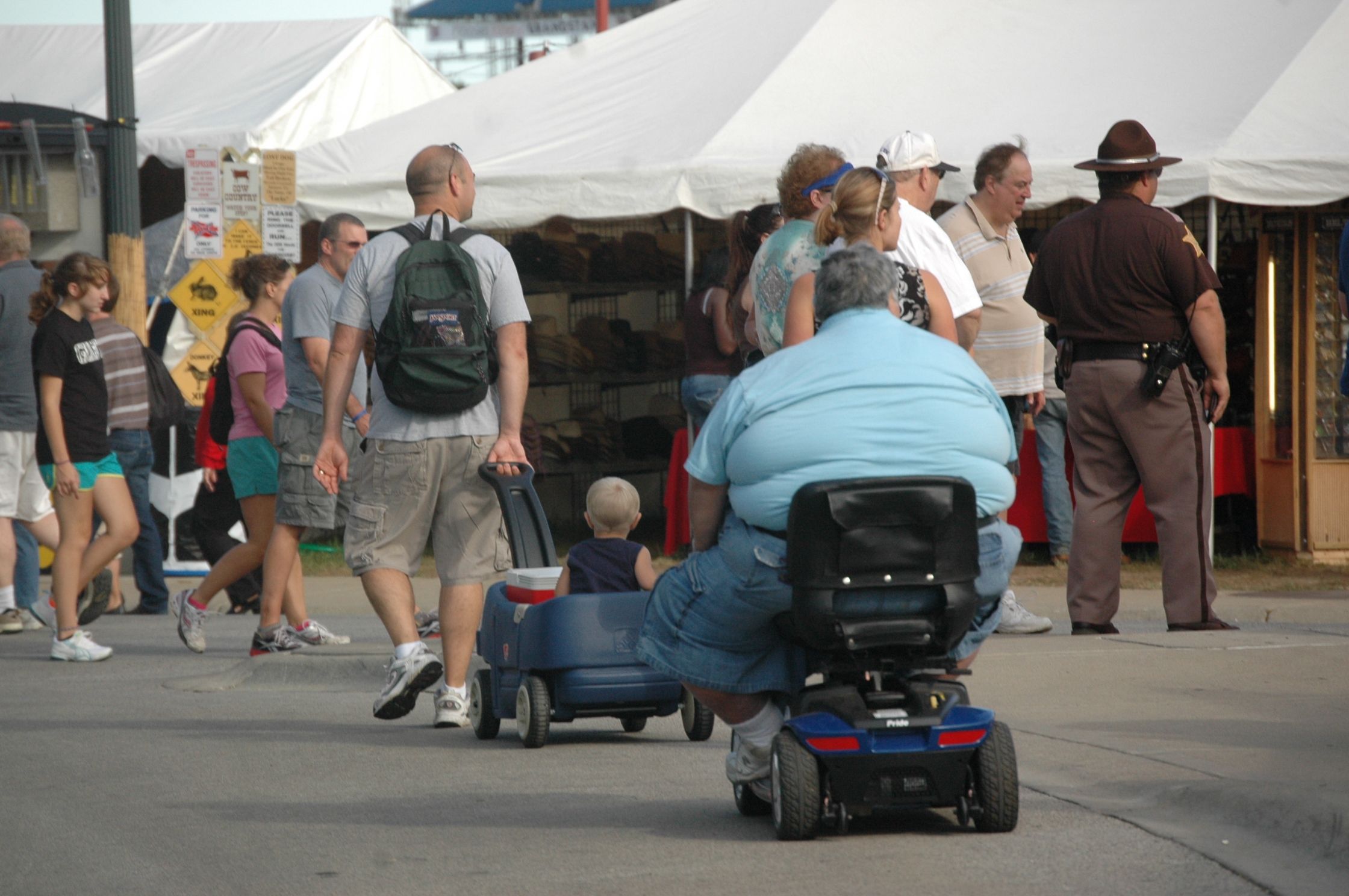In a recent OpEd from The Guardian, author Larry Elliot opines on the frequency of obesity among low-income households in the U.K., and points out that the problem “in the U.S. mirrors that of the U.K.” Elliot goes on to proclaim, that, “there will be less obesity when people can afford to eat better.”
The premise is that poor folks are victims of one injustice or another; in Elliot’s case, he claims they are unable to afford healthy food. This notion has been floating around for several years now, particularly as it relates to children, and is one that is frequently parroted by the left in America.
In November, 2019 the CDC published a report, with little fanfare, that stated incidents of childhood obesity among low-income households in the U.S. had decreased. Being confused by this news is understandable. The idea of childhood obesity in low-income households being a problem worthy of CDC involvement is counter-intuitive to anyone with logical intuitiveness. How can obesity among the poor be such a problem? People who are truly poor would have a hard time providing enough food for their children, not the other way around, right? After all, we have leftists like Sen. Bernie Sanders (I-VT) proclaiming that America’s economy is “grotesquely unfair.”
The issue got added attention after a 2008 study showed that childhood obesity in Massachusetts was a serious problem, with 30% of all children in the state being obese. Furthermore, a higher frequency (33.5%) had been reported in low-income households. Let those numbers sink in — more than one third of children in low-income households were obese, higher than the statewide average. Subsequent studies by the University of Michigan and the National Institute of Health showed that obesity was more likely to show a correlation with income levels than with ethnicity or race. The UM study concluded that consumption of foods with low nutrition and fast food, combined with insufficient exercise, were driving factors.
Dr. Kim Eagle, a director at UM explained,
“Ultimately, bottom-up neighborhood, school, and community engagement and education, and top-down legislative actions that will support healthier choices for adults and children, are needed to battle this health crisis.”
Yes, you read that correctly: top-down legislative actions are the solution. Academia, once again, telling us that government is the answer. Other organizations such as the non-profit group Health Affairs have also looked into the problem and cite a lack of, “outdoor parks or walking paths, or distance to the nearest playground or recreation center” as a contributing factor.
Herein lies the fundamental difference between the left and conservatives: the role of personal responsibility. Who is responsible for making sure children are leading healthy lives, the parents or the government? An underlying theme in the reporting of childhood obesity in low-income families and identifying remedies to address it is this: government must fix it. Kids are eating at McDonald’s too frequently, so the government needs to step in. Families choose housing that’s inconvenient to supermarkets where they can buy healthy foods, so the government needs to do something. And if playgrounds and athletic fields are not close enough to that housing, then that is the government’s fault as well.
Meanwhile, those of us on the Right understand the true cause of such problems: poor choices. Yes, government should provide infrastructure such as mass transit, roads and sidewalks, and playgrounds; but parents are the ones who are ultimately responsible. Parents decide where they live, what their children eat, and how much exercise those children get. One thing on which both the left and right agree is that government should play a role in education. Therefore, a suggestion: let’s run a public service announcement stating the following – “Hey Mom and Dad. Tell Junior to put down the Cheetos and Dr. Pepper, turn off the TV and get off of his butt.”
The problem of childhood obesity among the poor tells a broader tale, however, which is the reality of the American standard of living. Based on the federal government’s own standard, the median American household of four living under the poverty line has more living space than the average (non-poor) European family. That same U.S. family also has a car, air conditioning, two color TVs and cable, and a good chance that a chubby kid is sitting on the couch and enjoying both. If that is poverty, then America is doing pretty well.
American leftists would have us believe that billionaires are the problem with our society, the fat cats. It is not fair that they have so much money while we have people that are poor, and they want to transform our society in order to fix it. But this is insanity, clearly. Childhood obesity among the poor is such a problem that we had to study it and implement fixes in order for them to trim down. And the left wants to take more taxpayer money?
America does not need to be fixed, it needs to be fine-tuned. If we have to “battle a health crisis” of poor, obese kids, then that situation belongs in the category of “a good problem to have.” Truly, God Bless America. It is great to hear that the obesity problem is improving (and if government had anything to do with fixing it, congratulations), but the fact that it was even a problem to begin with is even better news.
To be clear, no one doubts there is still a problem with hunger in the country, which is unacceptable. For those screaming at your phones and computer screens that, “a nation as great as ours should not have anyone starving,” you are right, particularly when it comes to children. Programs like SNAP (food stamps) have a place in our society, but must be controlled and limited. Private, charitable programs like local food pantries and soup kitchens for those in need can be highly effective, and all of us — left, right, and center — should support them. We should make sure we do not have people starving, but we must do it by helping them help themselves. True compassion for the poor is providing them with opportunities to better their lives, not feeding them cheeseburgers and buying them treadmills on the taxpayers’ dime.


Poor choices simply isn’t it when it comes to obesity and poverty. The fact is that the food-insecure try to stretch their budgets with buying calorie-dense foods that last. Those are also the same foods that, in lack of moderation, make people fat. There’s also issues with lack of storage space (having no or only small refrigeration space), most poor are in apartments with no space for an additional freezer too, and they’re also likely to have longer hours and commuting times leaving less time for food preparation as well. The rush to urbanization doesn’t help either, since that means people no longer have the space to garden or raise small meat animals in like they could have 100 years ago. If SNAP was raised from the current $16-150 for a single to $300 then yes, people could afford to get salads, fish, chicken etc. If they’re feeling scared and insecure about their grocery budget every month, that turns them away from the healthier, more perishable foods; they go into bunker mentality and go for the heavier, more easily stored foods. It’s just that simple, insecurity drives choices.